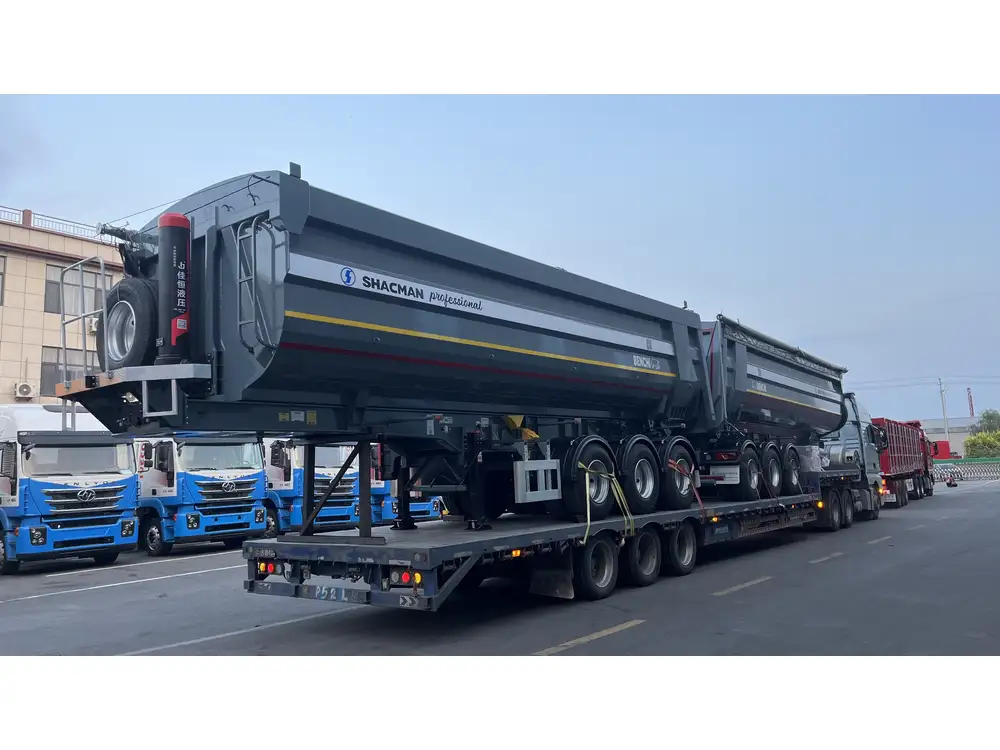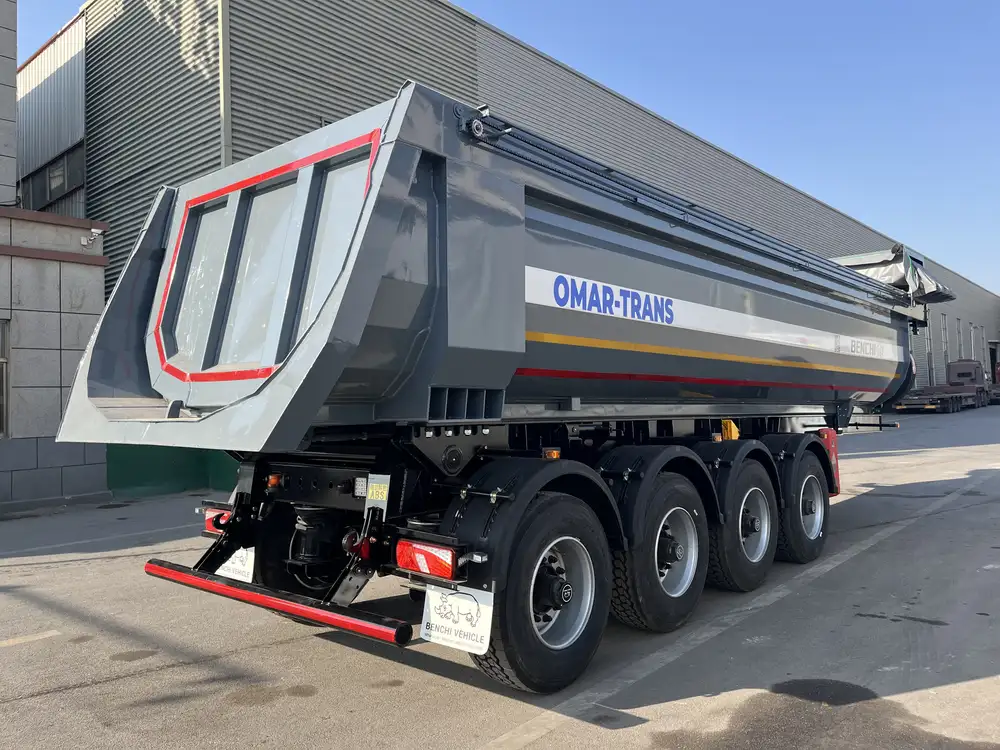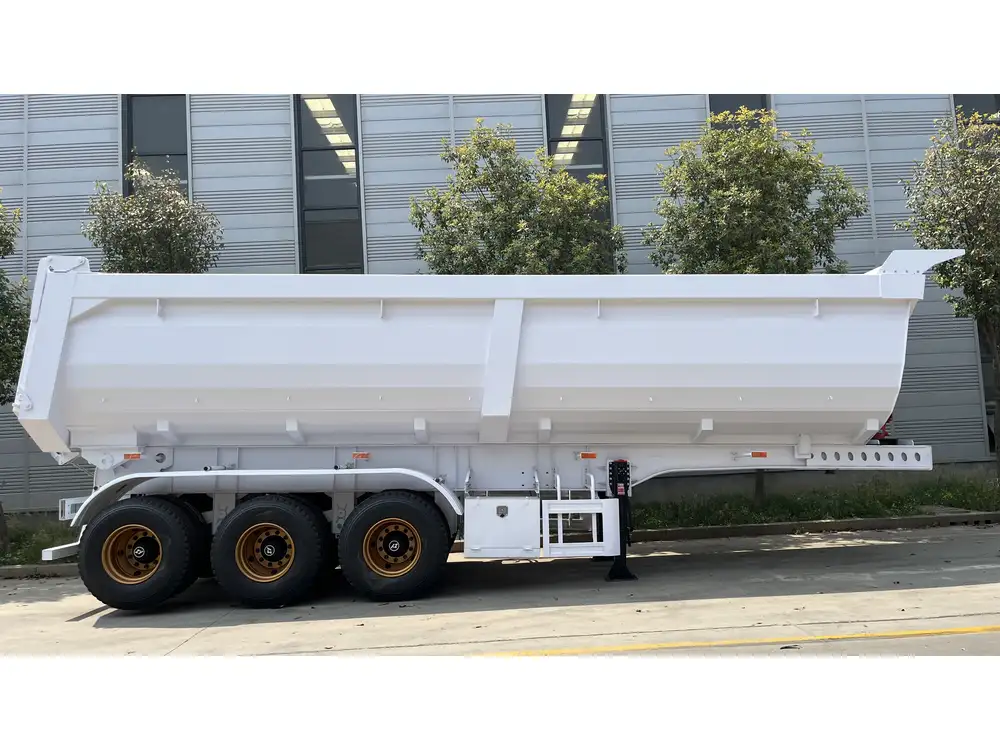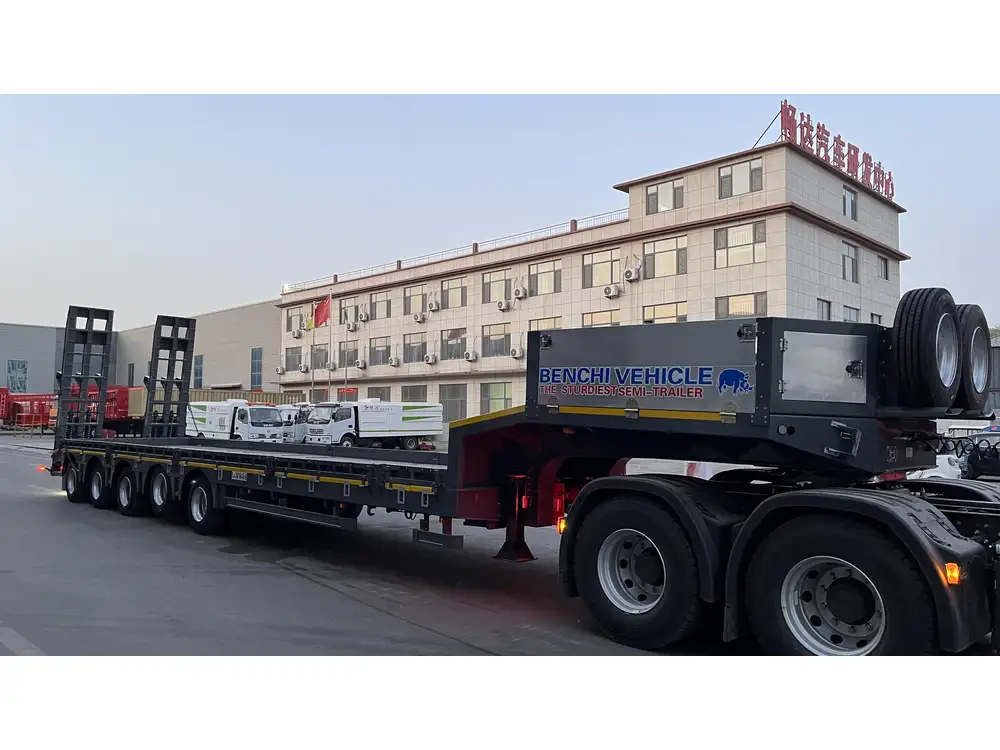Finding the right semi-trailer roof is crucial for ensuring durability, safety, and compliance with industry regulations. As a key component of your logistics operation, the roof’s integrity contributes significantly to the overall performance and longevity of your semi-trailer. This article serves as a detailed guide for fleet owners and operators looking to purchase high-quality semi-trailer roofs, providing essential information about options, suppliers, and factors to consider.
Understanding Semi-Trailer Roof Types
Before diving into where to buy semi-trailer roofs, it’s essential to understand the different types available on the market. Each type serves specific purposes and is designed for varying operational needs.
| Roof Type | Description | Advantages |
|---|---|---|
| Flat Roof | A simple, level roof design typically made from aluminum or steel. | Cost-effective, lightweight, easy to repair. |
| V-Notch Roof | Features a sloped design which aids in shedding water and snow. | Better weather resistance, improved aerodynamics. |
| Curved Roof | A rounded design that offers superior aerodynamics and aesthetics. | Enhanced fuel efficiency, unique appearance. |
| Tarped Roof | Often used for loads requiring quick access; includes a tarpaulin cover. | Flexibility for various loads, lightweight solutions. |
Key Considerations When Choosing a Roof Type:
- Load Requirements: The type of cargo you transport can dictate which roof design is most suitable.
- Weather Conditions: Regions with heavy snowfall or rain may benefit from a design that facilitates drainage.
- Maintenance Needs: Some roofs require more upkeep than others; consider your operational capabilities.

Top Suppliers for Semi-Trailer Roofs
Now that you understand the different types of semi-trailer roofs, it’s time to explore the vendors who can supply these essential components. When looking to buy a semi-trailer roof, quality and reliability are paramount. Below are several reputable suppliers known for their excellent products and customer service.
| Supplier | Location | Specialization | Website |
|---|---|---|---|
| Utility Trailers | Various U.S. Locations | Robust custom trailers and replacement roofs. | utilitytrailer.com |
| Wabash National | Lafayette, IN | Industry-leading in semi-trailer production. | wabashnational.com |
| Great Dane Trailers | Multiple U.S. Locations | Extensive range of trailers and semi-trailer roofs. | greatdanetrailers.com |
| Trailmobile | Nationwide | Specializes in lightweight and durable trailer designs. | trailmobile.com |
Evaluating Suppliers
When selecting a supplier, consider the following factors:
- Reputation: Look for suppliers with positive customer reviews and industry recognition.
- Customization Options: Some suppliers allow for tailored roof designs to suit specific operational needs.
- Warranty and Support: Ensure the supplier offers warranties on their roofs and provides reliable customer support.
How to Purchase: Steps for Fleet Owners
For fleet operators, purchasing a semi-trailer roof is more than just a transaction—it’s an investment in your operational efficiency. Here’s a streamlined process to follow:
Assess Your Needs:
- Determine the type of trailer and specific requirements based on your cargo.
Research Suppliers:
- Use the table above for reputable suppliers and explore their offerings in detail.
Request Quotes:
- Reach out to multiple suppliers for quotes. Ensure clarity on materials, shipping timelines, and installation services.
Evaluate Options:
- Compare the quotes based on pricing, materials, service offerings, and delivery options.
Finalize Purchase:
- Once you choose a supplier, confirm the order details and payment methods. Be clear about delivery expectations.
Inspect Upon Delivery:
- Once the roof arrives, perform a thorough inspection for any damage or discrepancies before installation.

Installation of Semi-Trailer Roofs
The installation process of a semi-trailer roof can vary significantly based on the roof type and complexity. Whether you choose to conduct the installation in-house or hire professionals, understanding the installation process is vital.
Common Installation Steps
Preparation:
- Clean the existing trailer surface to remove dirt and debris.
- Gather necessary tools and materials, including sealants and fasteners.
Positioning the Roof:
- Align the new roof with the trailer frame, ensuring it fits securely and accurately.
Securing:
- Follow the manufacturer’s instructions on how to attach the roof, utilizing brackets or adhesive if necessary.
Sealing Joints:
- Apply sealant to all joints and edges to prevent leaks and protect against environmental elements.
Final Inspection:
- Inspect the installed roof for proper fitment and any potential leaks or issues.
Professional Installation Services
If the installation seems daunting, many manufacturers offer professional installation services. This option can save time and ensure the roof is correctly fitted, minimizing future repair costs.

Maintenance Tips for Semi-Trailer Roofs
Maintaining your semi-trailer roof extends its lifespan and enhances performance. Here are essential maintenance tips:
- Regular Inspections: Schedule periodic checks to catch early signs of damage. Look for cracks, rust, or corroded areas.
- Clean Odd Shape Areas: Keep built-up debris off the roof to avoid pooling water, especially in matching corners or crevices.
- Repair Immediately: Address any issues as soon as they present themselves. Minor repairs are often more manageable and cost-effective than major replacements.
- Protective Coatings: Consider applying a protective sealant or coating every few years to guard against weather-related wear.
Frequently Asked Questions (FAQs)
1. Where can I buy semi-trailer roofs online?
Many reputable suppliers offer online shopping through their websites, providing the option to order replacement roofs directly.

2. How much does a semi-trailer roof cost?
Pricing varies significantly depending on the type of roof, size, and materials. On average, expect to spend anywhere from a few hundred to several thousand dollars.
3. Should I choose a custom roof or standard sizes?
Custom roofs can be beneficial for specialized operations, while standard sizes are usually more economical. Evaluate your specific needs for the best choice.
4. How long does a semi-trailer roof last?
With proper maintenance, most semi-trailer roofs can last between 10 to 20 years, although this may vary based on materials and environmental conditions.

Conclusion
Acquiring a semi-trailer roof involves understanding your cargo needs, evaluating various suppliers, and making informed decisions about installation and maintenance. By following the guidelines outlined in this article, you can ensure that your chosen roof meets your operational demands, enhances your fleet’s efficiency, and stands the test of time. Remember, investing in a quality semi-trailer roof is not merely about immediate costs—it’s about the safety, performance, and durability of your entire logistics operation.



